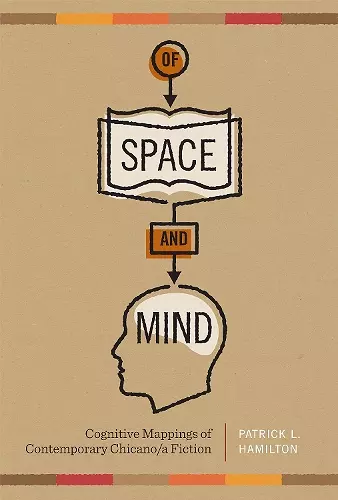Of Space and Mind
Cognitive Mappings of Contemporary Chicano/a Fiction
Format:Paperback
Publisher:University of Texas Press
Published:1st Apr '11
Currently unavailable, and unfortunately no date known when it will be back

Bringing cognitive methodologies to the analysis of Chicano/a fiction for the first time, this book maps ethics of "persistence" and "transformation" in the fiction of Rudolfo Anaya, Ana Castillo, Denise Chavez, Rolando Hinojosa, Arturo Islas, John Rechy, Alfredo Vea, and Helena Maria Viramontes
Bringing cognitive methodologies to the analysis of Chicano/a fiction for the first time, this book maps ethics of “persistence” and “transformation” in the fiction of Rudolfo Anaya, Ana Castillo, Denise Chávez, Rolando Hinojosa, Arturo Islas, John Rechy, Alfredo Véa, and Helena María Viramontes.
Chicano/a fiction is often understood as a literature of resistance to the dominant U.S. Anglo culture and society. But reducing this rich literary production to a single, binary opposition distorts it in fundamental ways. It conflates literature with life, potentially substituting a literature of protest for social activism that could provoke real changes in society. And it overlooks the complex range of responses to Anglo society that actually animates Chicano/a fiction.
In this paradigm-shifting book, Patrick L. Hamilton analyzes works by Rudolfo Anaya, Ana Castillo, Denise Chávez, Rolando Hinojosa, Arturo Islas, John Rechy, Alfredo Véa, and Helena María Viramontes to expand our understandings of the cultural interactions within the United States that are communicated by Chicano/a fiction. He argues that the narrative ethics of "resistance" within the Chicano/a canon is actually complemented by ethics of "persistence" and "transformation" that imagine cultural differences within the United States as participatory and irreducible to simple oppositions. To demonstrate these alternative ethics, Hamilton adapts the methodology of cognitive mapping; that is, he treats the chosen fictional texts as mental maps that are constructed around and communicative of the narrative's ethics. As he reads these cognitive maps, which envision Chicano/a culture as being part of U.S. society rather than as "resistant" and separate, Hamilton asserts that the authors' conception of cultural difference speaks more usefully to current sociopolitical debates, such as those about gay marriage and immigration reform, than does the traditional "resistant" paradigm.
ISBN: 9780292743977
Dimensions: unknown
Weight: 454g
224 pages